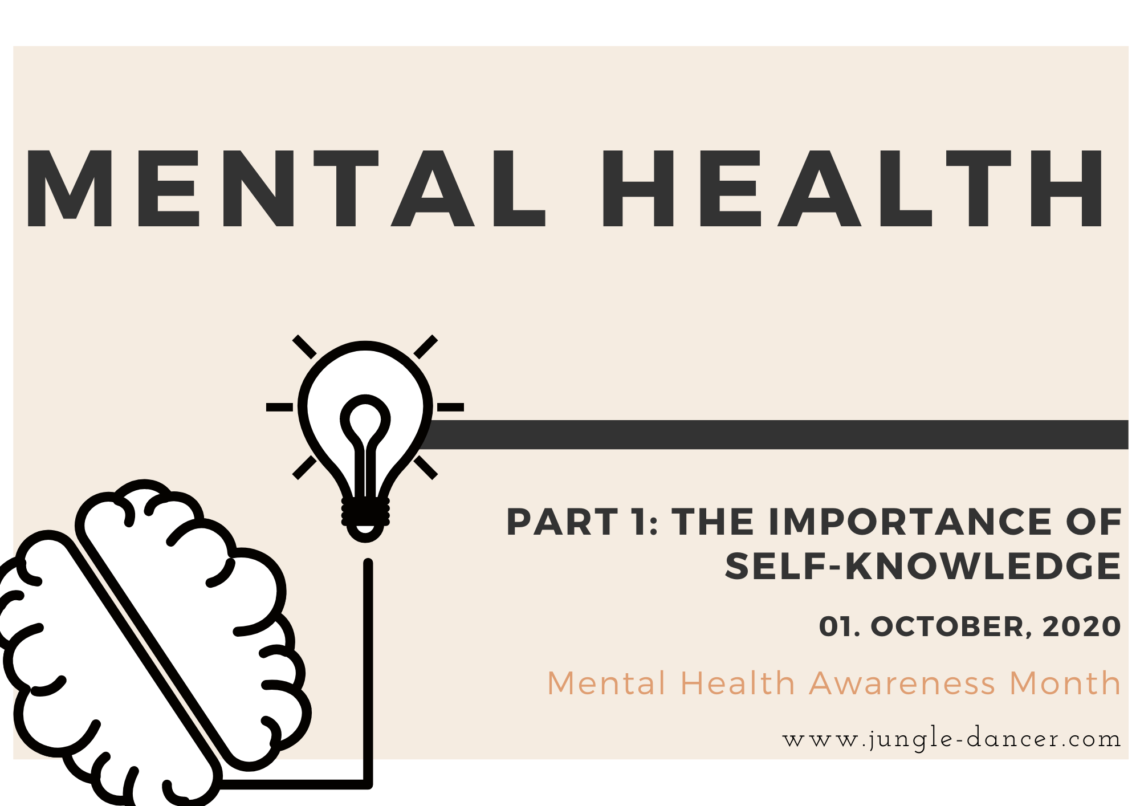
Mental health and the importance of self-knowledge
What is Mental Health?
Mental health: we neglect it so often, forgetting that it is one of the most crucial aspects of our life. Symbiosis of our emotional, psychological, and social well-being. Simultaneously shaped both by our brain [chemistry] and by our everyday experiences. Mental health: it is us, and we are it.
Our mental health affects every pore of our being: how we think, feel, manage stress and work responsibilities, maintain relationships, manage our time… The challenging part about it is that is constantly evolving – same as we are. Depending on our age, biology (genes or hormones for example), external conditions, traumas and stressors, and/or family and friends dynamics, our mental health can take unexpected, but not necessarily negative, turns.
One of the common misconceptions about mental health is that is a “topic” relevant only for those who struggle. Anxiety, depression, eating disorders, and bipolar disorder are some of most well-known mental disorders; yet, it does not mean in any way that you have to be diagnosed with any of these in order to start paying attention to your mental health.
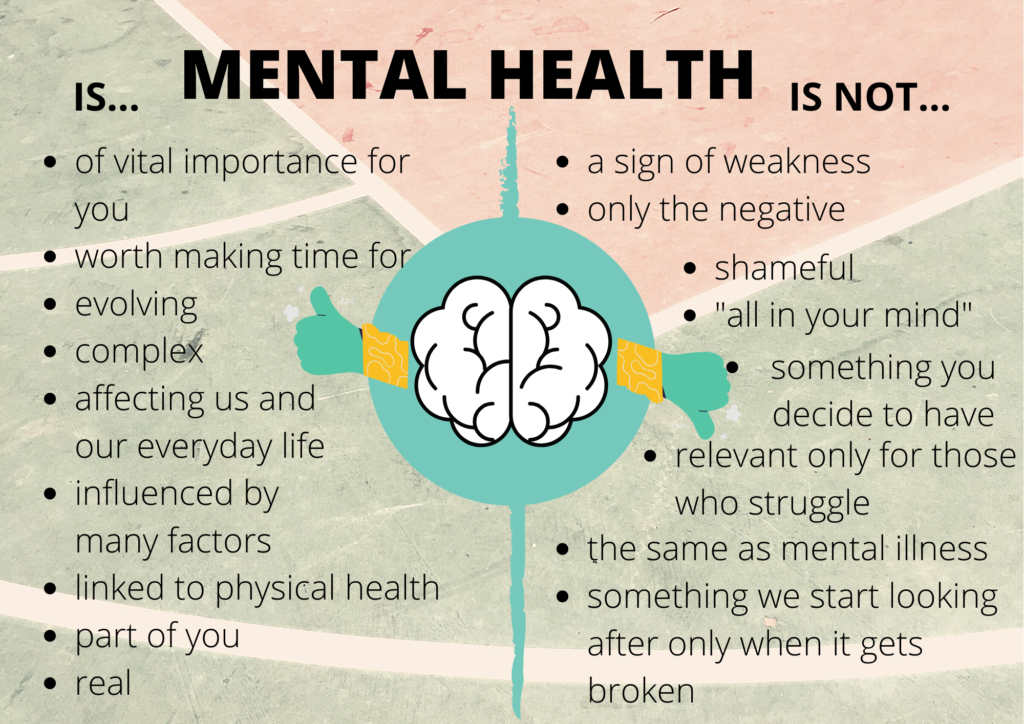
Truth is, we all struggle. But, understanding that this is normal part of life on the one hand, and understanding ourselves on the other, can be extremely comforting.
Why am I as I am? Who am I? How was I influenced by my past experiences and how will these shape my life in the future? Am I only a prisoner of my thoughts; or, can I find a way to overcome the barriers in my life and finally overcome to biggest barrier of them all – myself?
Finding the answers to these questions and realizing the importance of self-knowledge are the first steps towards maintaining a good mental health and a healthy relationship with yourself. Hopefully, after self-knowledge, self-love and self-acceptance can follow.
Self-knowledge
Much of what destroys our lives can be attributed to emotions that our conscious selves haven’t found a way to understand or address in time. It is logical that Socrates should have boiled down the entire wisdom of philosophy to one simple command: “Know yourself”.
Knowing ourselves is laying the foundation for nurtured mental health. Much of our behavior patterns can be traced back to our childhood (cliche, I know, but true); yet, at the same time, we can barely remember anything truthfully about it. We tend to romanticize our former selves or our former experiences, even when it is not about about childhood memories.
It is not completely unreasonable to forget – or, better said, suppress – the wounds of the past. It is in fact a protective mechanism that sugar coats our personal histories and through denial, falsely promises us a joyful and obstacles-free life. However, by choosing to focus only on the cheerful memories, we omit – at least for a while – precisely the memories of the events that had the greatest impact on our character.
Through self-deception, we stay in our comfort zone, even when the comfort is damaging. Yes, sure, we “protect” ourselves from finding some possibly painful answers; but, at the same time, we avoid finding out how much we have compromised our lives for the sake of others; how much we need to change about our relationships with others – be it a partner, parents, siblings, friends, or colleagues; or, how we have ended up being in a job we hate. And these points largely influence our mental health and our overall life quality.
Markers of emotional health
The School of Life – a collective of psychologists, philosophers, and writers operating under this common brand – identify four markers of emotional health. They suggest that in order to assert how badly our early years have influenced us, we should firstly assert how we respond to these markers.
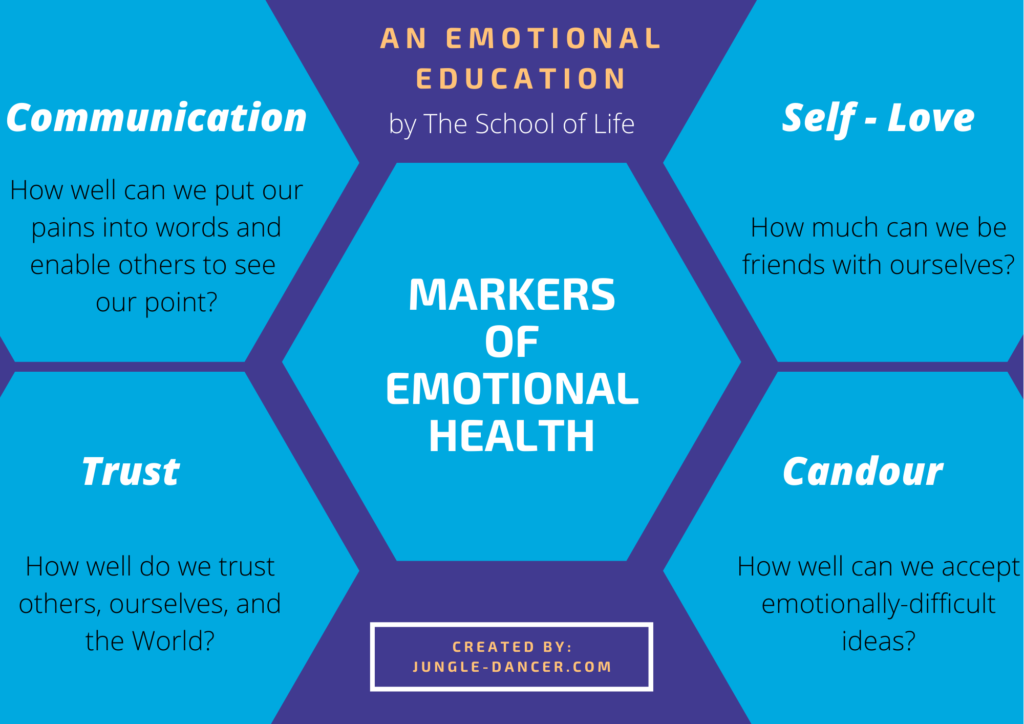
Let me give you some food for thought for each of these four markers.
1. Communication
- Do you communicate or internalize your pain?
- When people upset you, do you feel the need to communicate with them? Or, would you rather avoid the possibility of a conflict?
- How do you react when people cannot understand what you are trying to tell them?
- How good are you at communicating your disappointments, the reasons for these disappointments, and how you want to change things?
- How do you deal with frustration when you cannot communicate well with loved ones?
The answers to these questions should tell you not only how you respond to your struggles, but also how actively you think and talk about them. Finding the strength to verbally explain your feelings and experiences shows a certain emotional maturity, but also self-assertiveness that can have an overall positive impact of your mental health.
Since we are social beings, much of our emotions and mental health patterns yield from social contacts. These can never be long-lasting unless you can speak up your mind in the best possible way. Even if it is hard at first, give it a try. Maybe write a bit before you speak. Do not get discouraged if you are misunderstood at first. Seek for good listeners and people you trust in so that you can feel safe when sharing your burdens. Which brings me to the second point – trust.
2. Trust
- How much do you trust other people?
- How much do you trust yourself?
- What do you think when meeting new people or starting a new job?
- How do you react to unfamiliar situations?
- When you are faced with a challenge, how readily do you accept it and how much do you trust yourself that you can stand up to it?
- When it comes to love, how are you as a partner?
The topic of trust is a highly complex one. It addresses behaviors directed towards us, but also towards other people. In this way, the trust we have – or the lack of it – determines how controlling we need to be in our lives. Trusting other people and trusting ourselves and the decisions we make are the main conditions for embracing the world as it is and accepting that even though sometimes people hurt us, it does not mean that we are not worthy or deserving of something great.
3. Self-Love
- Can you always stay on your side and be your own best friend?
- How do you react to humiliation or offense from other people?
- How do you react to toxic relationships – be it your own one or of other people?
- When you make a mistake because of ignorance, how do you feel? Do you distinguish between lack of knowledge and lack of character?
- How ready are you at work to ask for help and/or promotion/raise?
- Can you say “no”?
- How much do you need to please others? If a lot, why? If not at all, why?
I think this point is pretty self explanatory, but same as self-knowledge, it comes hard to many of us. We do not necessarily hate ourselves, but we do not necessarily always love ourselves either. The idea of self-love, however, is indeed asking us to always be mindful about our characters and love them nevertheless. Of course, through the process of self-knowledge we might want to aim to alter some of our behaviors, but even then, we should do so lovingly and respectfully. Nothing blooms when watered with hatred.
4. Candour
- Up to which extent to you allow difficult ideas to enter your mind? How well do you accept them?
- How often do you turn to denial when faced with a criticism or (negative) feedback?
- Can you admit to yourself that you have made a mistake?
- How often do you reflect upon your misbehavior?
- Can you explore your own mind and its troubled, dark corners without feeling guilty or scared?
- How readily do you learn from and listen to others?
If communication addressed the point of speaking up peacefully what is bothering us; if trust addressed the point of how well we trust other people that they want abuse our weaknesses or pains we have communicated with them; if self-love addressed the point of accepting ourselves, even when someone breaks our trust and refuses to loves us; then, candour addresses the willingness to hear everyone’s criticism – including your own. In doing so, you pave the path for self-knowledge on the one hand, and for fruitful communication on the other. Slowly, you learn to trust yourself and others until you finally learn how to be your most loyal and most loving friend.
Final words on self-knowledge and its influence on mental health
These four emotional markers are interwoven and almost indistinguishable from one another. Only through insightful questions and honest answers you can slowly, day by day, get to know yourself.
It it funny that we spend all of our time with our thoughts, quirks and character and yet, we are strangers to ourselves. We bombard our mind with social media, work, art, music, literature – which is all needed and nice – but we tend to forget to stop looking so much into the outward world and decide to take a look inward.
I believe that self-knowledge is the first step towards nourished and balanced mental health. Through self-knowledge, we get the chance to utilize our strengths and acknowledge our weaknesses. Accordingly, we can use our strengths to our advantage, but also be ready to reach out for help, whenever needed. By doing do, we give ourselves the chance to grow. To change and evolve beautifully. To accept that we and life cannot be perfect, but when we know ourselves, life can be healthy, joyful, and loving.


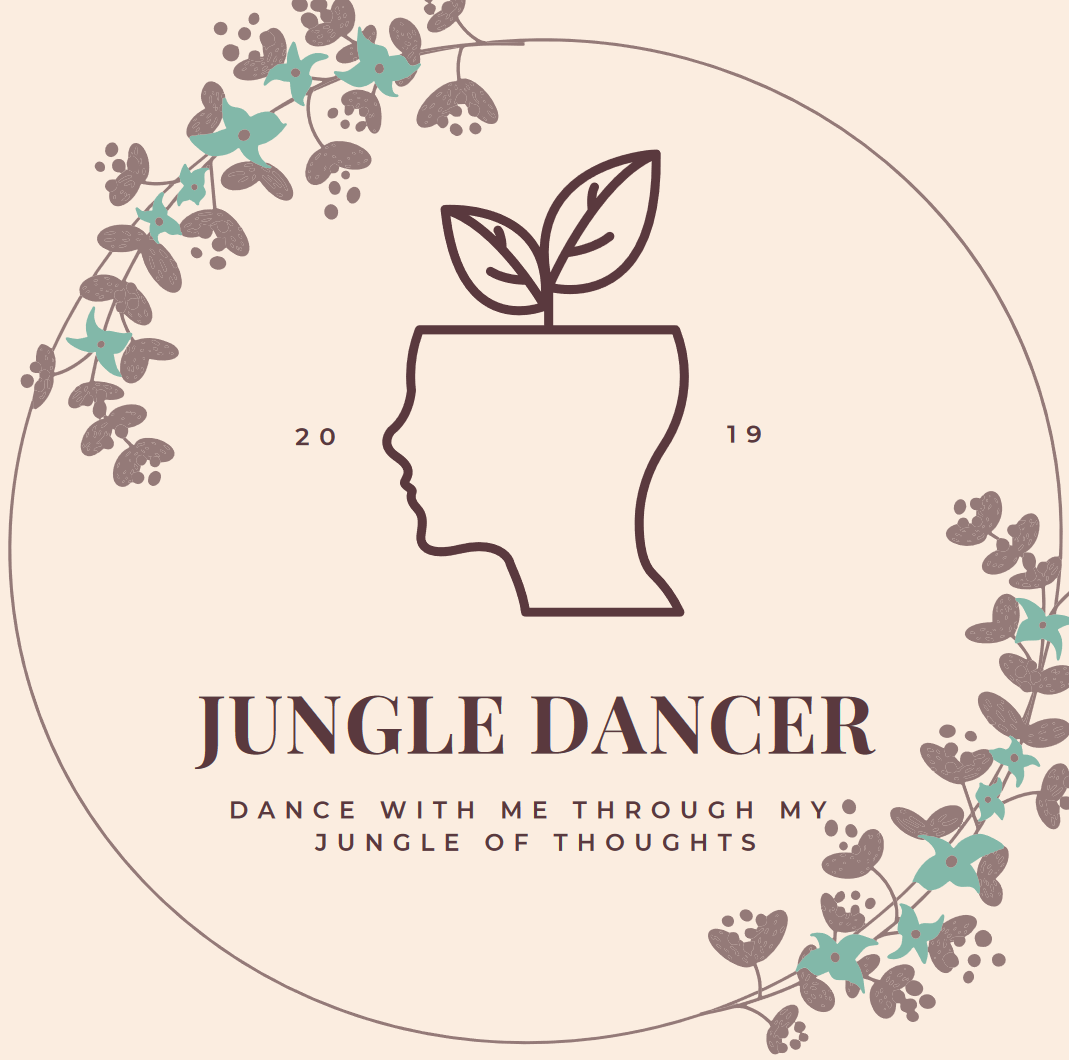
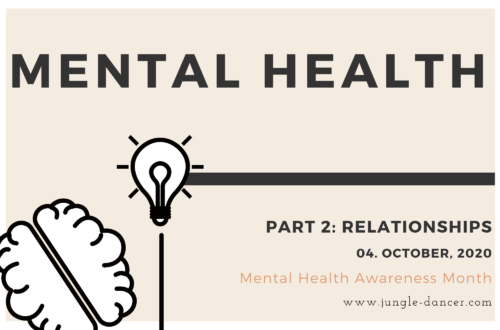
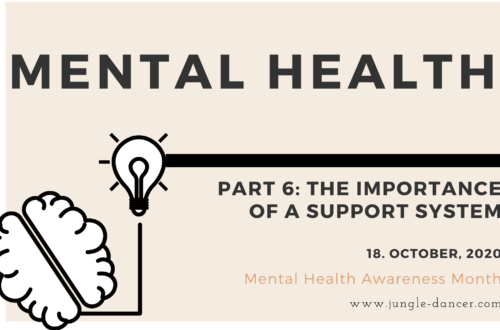
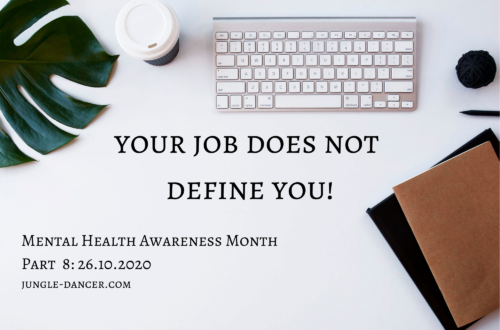
8 Comments
Pingback:
Pingback:
Pingback:
Pingback:
Pingback:
Pingback:
Pingback:
Ian Fletcher
Impressive!Thanks for the post